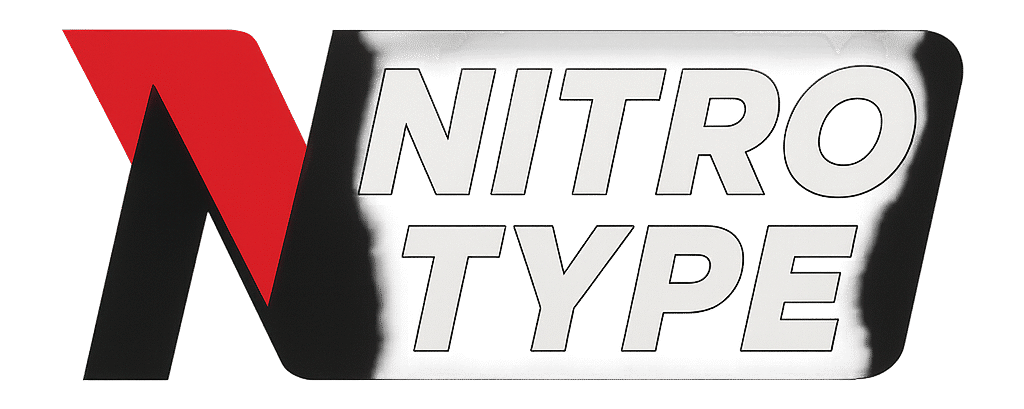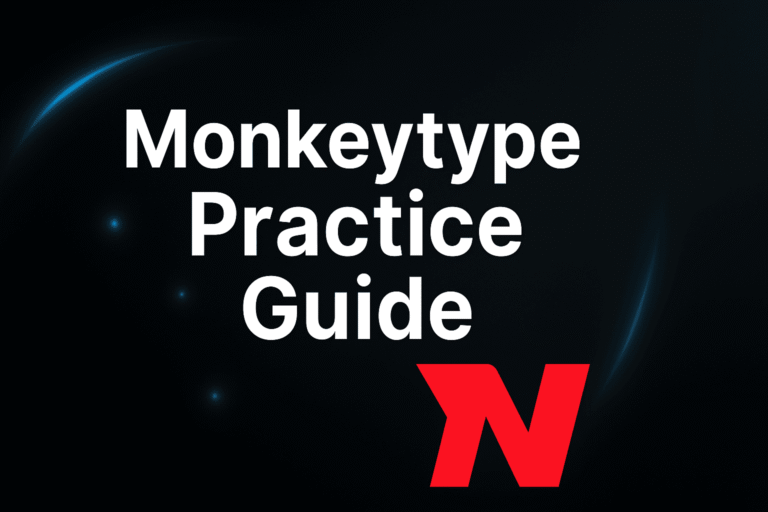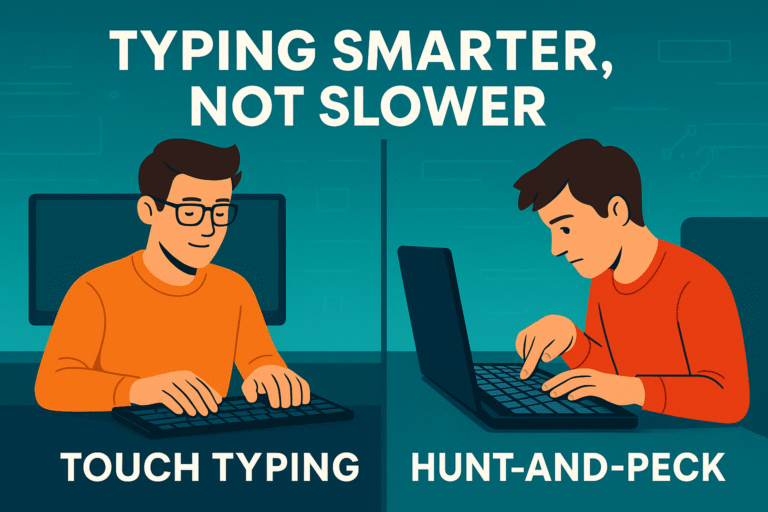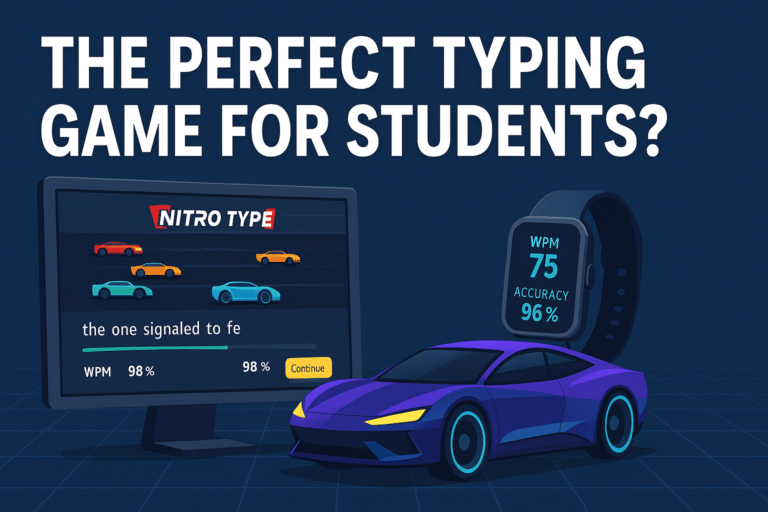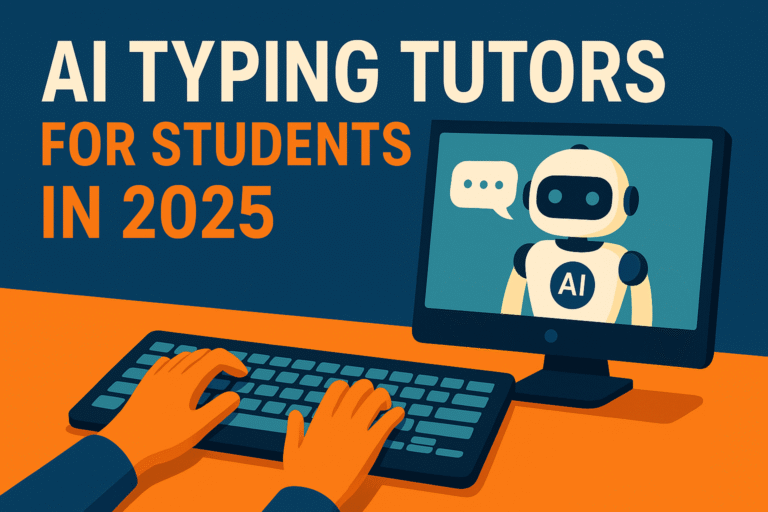Typing Trainer Guide: How to Type Faster in Just 7 Days
Introduction: Why a Typing Trainer Can Change the Way You Work
Typing speed and accuracy aren’t just skills for secretaries or coders anymore — in today’s digital-first world, the ability to type quickly and precisely is a productivity superpower. Whether you’re a student, a gamer, or a professional, the right typing trainer can help you master your keyboard skills in a fraction of the time it would take on your own.
In this guide, you’ll discover how to dramatically improve your typing speed in just seven days using proven techniques, structured practice, and a little bit of discipline. You’ll also learn how to choose the best tools, avoid common mistakes, and keep your momentum going long after the week is over.
Table of Contents
The Benefits of Using a Typing Trainer
A typing trainer is more than just a speed test. It’s a structured learning tool designed to train your fingers, build muscle memory, and eliminate hesitation between thought and keystroke. Here’s why it’s worth your time:
Boost Your Productivity
The faster you type, the less time you spend on writing tasks. A typing trainer helps you reclaim hours every week.
Improve Accuracy
Many people can type quickly but make costly mistakes. A good trainer teaches you to type fast without sacrificing accuracy.
Reduce Fatigue
When your hands know exactly where to go without conscious effort, typing becomes smoother, reducing strain and fatigue.
Understanding Your Current Typing Speed
Before you begin your typing trainer journey, you need to know your starting point.
- Take a baseline test: Websites like Typing.com or 10FastFingers let you measure your Words Per Minute (WPM) and accuracy.
- Analyze your results: Focus on accuracy first — it’s better to be accurate at 40 WPM than sloppy at 70 WPM.
Once you know your current speed, you can set realistic goals for the next seven days.
Choosing the Right Typing Trainer Tool
Not all typing trainers are created equal. Here’s what to look for when choosing one:
Features to Consider
- Adaptive difficulty – The trainer should get harder as you improve.
- Progress tracking – Motivation comes from seeing your gains over time.
- Varied exercises – Repetitive drills are boring; look for engaging challenges.
Recommended Free Tools
- Keybr.com – Generates practice text based on your weaknesses.
- TypingClub – Fun, interactive lessons for all levels.
- Nitro Type – Gamified typing races that keep you motivated.
For competitive fun, you can even check out the list of the best Nitro Type teams to join communities that will challenge and inspire you.
The 7-Day Typing Trainer Plan
Here’s your day-by-day roadmap to faster typing:
Day 1 – Learn Proper Hand Placement
Start with the home row keys. Keep your index fingers on F and J — the bumps on these keys are your anchors.
Day 2 – Focus on Accuracy Over Speed
Slow down. Aim for 95% accuracy before increasing speed. Correct bad habits early.
Day 3 – Build Muscle Memory
Use repetition drills. Practice common letter combinations and words you frequently use.
Day 4 – Increase Speed Gradually
Push yourself in short bursts. Aim for +5 WPM above your baseline.
Day 5 – Practice With Real Text
Copy articles, emails, or code snippets. This bridges the gap between drills and real-world typing.
Day 6 – Add Timed Challenges
Use your typing trainer’s timed tests to handle pressure. This improves both speed and mental endurance.
Day 7 – Review and Adjust
Compare your new WPM and accuracy to Day 1. Identify weak points and plan your next month of training.
Common Typing Mistakes and How to Fix Them
Looking at the Keyboard
Trust your muscle memory. Cover your hands if you have to.
Overusing Backspace
Mistakes are part of learning. Don’t over-correct — keep going and note your errors at the end.
Poor Posture
Sit upright with your elbows at a right angle and feet flat. Good posture reduces strain and speeds up learning.
Advanced Typing Trainer Strategies
Once you’ve completed the 7-day plan, keep improving with these tips:
- Switch to harder texts – Try legal documents, academic papers, or code for a challenge.
- Track your weekly progress – Graph your WPM and accuracy for motivation.
- Use a mechanical keyboard – Some typists find tactile feedback improves accuracy.
Real-Life Applications of Typing Skills
Your typing trainer practice pays off in many areas:
- Work – Faster email responses and report writing.
- School – Quicker essay and assignment completion.
- Gaming – Better chat speed in competitive games.
- Content creation – Blog posts, scripts, and creative writing done in less time.
Conclusion: Start Your Typing Trainer Journey Today
Mastering the keyboard is like learning a musical instrument — it’s all about consistent practice. With the right typing trainer, a structured 7-day plan, and a bit of patience, you can see dramatic improvements in both speed and accuracy.
Don’t wait for “someday” — start today, track your progress, and enjoy the satisfaction of watching your words fly across the screen.

Hi, I’m Kamran Khatri, the author behind NitroType.blog. I share typing speed tips, Nitro Type updates, gaming tricks, and productivity hacks to help you type faster and smarter. My goal is to make typing fun while helping you improve your skills like a pro. If you’re passionate about typing or want to level up your Nitro Type game, you’re in the right place!
